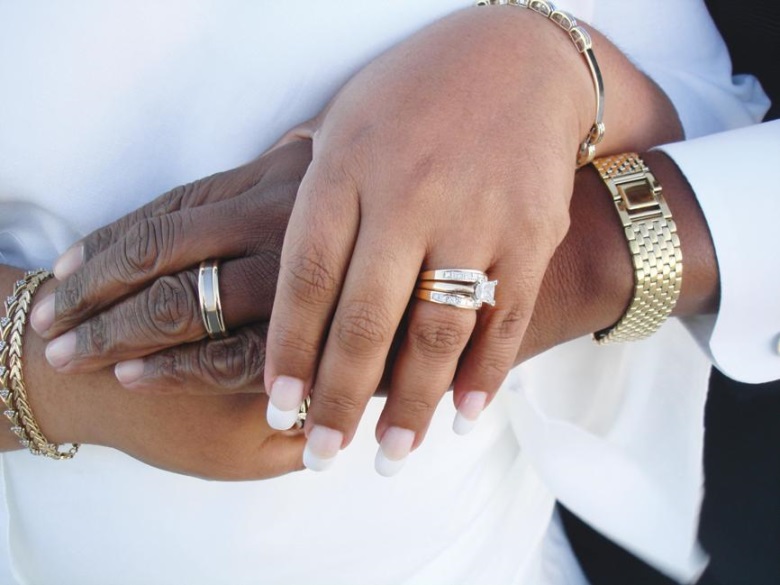Customary Marriages
Marriage is so much more than just the celebration and your change in status. A legally valid marriage automatically allows you to inherit in the absence of a will and to be eligible for spousal maintenance upon divorce.
The South African Constitution states that everyone is equal before the law and therefore, has the right to equal protection and benefits. In this way, it protects the people of South Africa from unfair discrimination on the grounds of race, gender, sex, sexual orientation, religion, belief and culture.
Therefore, based on the provisions of the Constitution civil, cultural, religious and same sex marriages now enjoy legal recognition, provided these are legally solemnised and registered.
The Recognition of Customary Marriages Act acknowledges customary marriages, which have taken place before and after the commencement of the Act (if validly concluded). It aligns with the constitution and recognises both monogamous and polygamous marriages –a contentious point in our law prior to the enactment of our Constitution.
Currently, in order to have your marriage legally recognised in terms of the Act, the following must be met:
- Both parties must be majors
- They must consent to marry each other in terms of customary law
- The marriage must comply with the parameters laid down in the relevant customary law e.g. payment of lobolo
- If either spouse is a minor the legal guardian’s consent is required
- Parties must be legally allowed to marry each other e.g. not related by blood
- If a husband in a customary marriage takes another wife making it a polygamous marriage the requirements set out in section 7(6) of the Act must be complied with, i.e. an application to the court needs to be submitted, allowing the parties to enter into an agreement regulating the proprietary consequences of the marriage.
Additionally, all customary marriages must be registered with Home affairs. This certificate constitutes prima pacie proof (adequate at first sight) that the marriage is legal and exists.
The provisions of custom will govern marriages that have not been registered and those marriages concluded before the commencement of the Act. This however can become very problematic at a later stage. For example, in the case of Gumede v the President of South Africa and 6 others, the applicant (Mrs Gumede) who married in terms of customary law prior to commencement of the Act, held that the distinction the Act makes between marriages entered into before and after commencement of the Act is unconstitutional and discriminatory based on race and gender. The Constitutional court confirmed this in its judgement of the case.
As with civil marriages, the divorce settlement is dependant on the existence of an antenuptial contract with or without the accrual system. If none exists, the marriage is automatically deemed to be in community of property.
Interestingly enough, the Recognition of Customary Marriages Act Marriages does not regulate marriages within the Hindu and Muslim religions, as they are potentially polygamous and thus in conflict with the provisions of the Constitution.
In respect of Hindu marriages the requirements set by the Marriage Act, must be complied with and the marriage registered with Home Affairs. However, if they are not, the marriage does not automatically become invalid and will instead be regulated by customary traditions.
As with civil marriages, Hindu marriages will be subject to the parameters laid out in the antenuptial contract (with or without the accrual system) or in its absence, automatically be regarded as being in community of property.
There are however various groundbreaking court cases that have set some guidelines for Muslim marriages. In particular, the cases Ryland v Edros where the court awarded spousal maintenance, Daniels v Campbell where the court ruled that the surviving spouse of a monogamous Muslim marriage can inherit intestate. However, the most vital groundbreaking case was that of Fatima Gabie Hassam v Johan Jacobs NO and six others. In this case, the deceased was married in terms of Muslim rites and had two surviving wives. The court held that it is unconstitutional that the word ‘survivor’ as described in the Maintenance of Surviving Spouses Act and the Intestate Succession Act did not include spouse(s) in a polygamous marriage.
Therefore, if you are considering entering into a customary marriage, it is highly recommended that you consult with your attorney before the time about both the legal ramifications and an antenuptial contract to protect your rights should the marriage not succeed.
ARTICLE AND IMAGE SUPPLIED BY SCHOEMAN ATTORNEYS
Photo Credit: www.citypress.co.za





